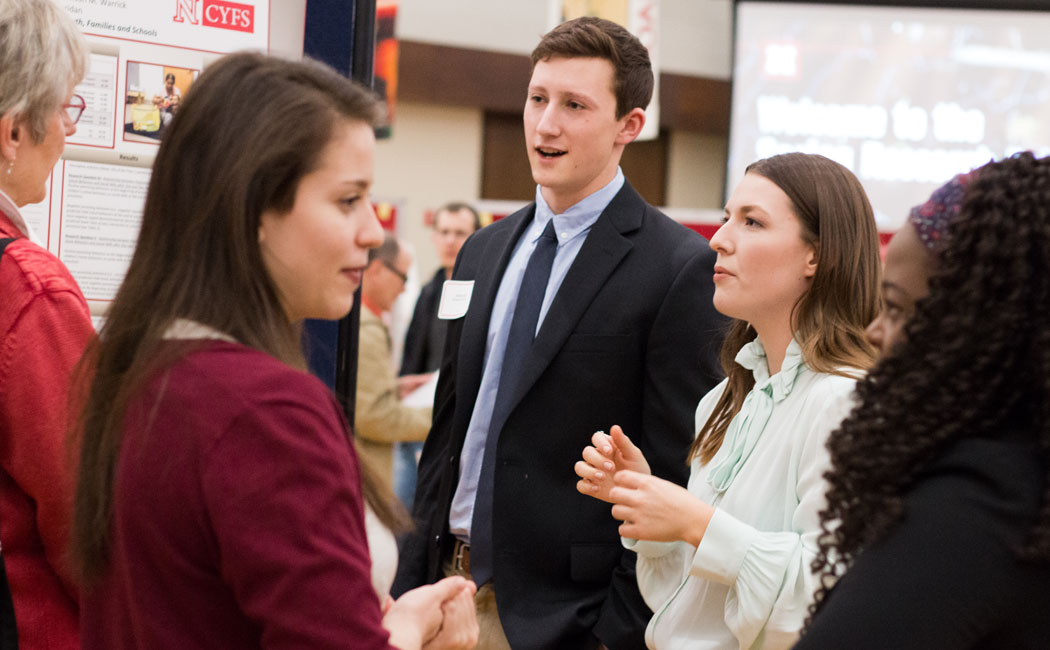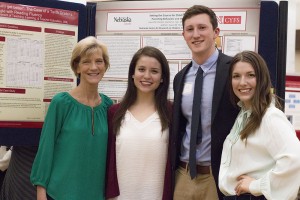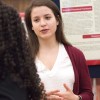
Three CYFS undergraduate research assistants have received a top research poster award from the College of Education and Human Sciences, and the Office of Undergraduate Research at the University of Nebraska–Lincoln.
Laura Domet, Zac Egr and Madison Warrick received the $250 award, which recognizes outstanding posters that were presented at the UNL Spring Research Fair. The award is funded by the College of Education and Human Sciences.
Titled “Setting the Course for Child Development: Parenting Behaviors and the Early Years,” the students’ research is part of CYFS’ Getting Ready study on early childhood development and was facilitated by Susan Sheridan, the study’s principal investigator and CYFS director.

As part of their research, the students watched video recordings of parent-child interactions and coded parenting behaviors, recording positive and negative behaviors on a seven-scale measure. They also collected information from parents about their children’s behaviors in monthly phone interviews.
Together, the students coded nearly 700 tapes—setting the foundation for their research questions: How do parenting behaviors affect children at the end of their first and second years of preschool? And how do those parenting behaviors affect children’s social and behavioral skills at home and school?
“This is really important information, because early behaviors act as predictors for later school success,” said Madison Warrick, a senior majoring in speech pathology.
After graduation, Warrick plans to attend the University of Texas at Dallas and pursue a Master’s degree in speech-language pathology. She also plans to continue working with clients in early childhood while in graduate school.
The knowledge gained from this experience is absolutely applicable to my career, no matter what direction I go.
Madison Warrick, senior
Egr, a senior majoring in psychology and biology, has assisted with research related to the Getting Ready project since the fall of his junior year, giving him a better sense of the coordination and effort that go into a large-scale research project.
“The amount of communication and teamwork required for all these pieces to work together is incredible, and those skills are applicable to any type of work environment,” Egr said.
Egr says his curiosity propelled his research. One question led to another, resulting not just in new research ideas, but also a new appreciation of the contributions of all team members—including undergraduate students.
“In our case, studying the effects that parenting behaviors had on various child outcomes was a very applicable topic that people can use right away,” Egr said. “That helped change my perception of research and the impact that an undergraduate can have.”
Photos:


